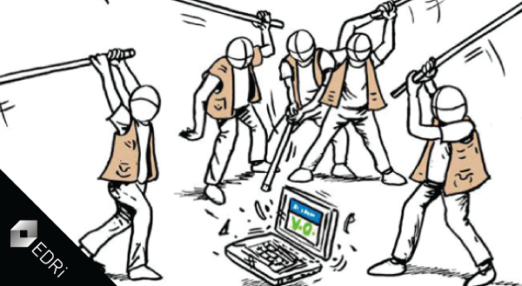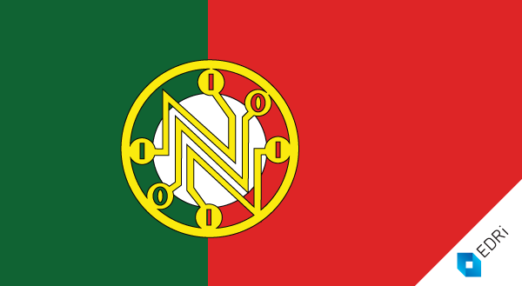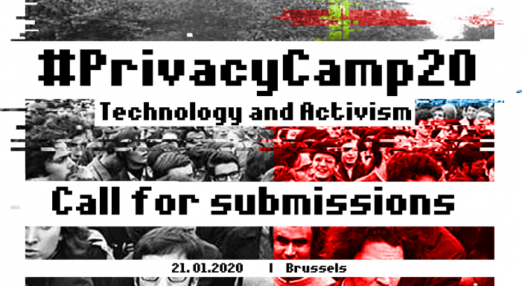Equal access to the internet
Filter resources
-

Booklet: #EthicalWebDev – guide for ethical website development and maintenance
We’ve finally published our new guide for ethical website development and maintenance, Ethical Web Dev! Explore the guide here
Read more
-

Our New Year’s wishes for European Commissioners
EDRi wishes all readers a happy new year 2020! In 2019, we had a number of victories in multiple fields. The European Parliament added necessary safeguards to the proposed Terrorist Content Online (TCO) Regulation to protect fundamental rights against overly broad and disproportionate censorship measures. The Court of Justice of the European Union (CJEU) ruled […]
Read more
-

Spain: New law threatens internet freedoms
On 5 November 2019, the Royal Decree-Law 14/2019 that had been adopted on 31 October was published in the Spanish Official State Gazette (BOE). This was just five days before the general elections that would take place on 10 November, under an undefined “exceptionality and urgency”, and justified by the “challenges posed by new technologies […]
Read more
-

Bits of Freedom celebrates its 20th anniversary
EDRi member Bits of Freedom celebrates its 20 year anniversary. Bits of Freedom believes an open and just society is only possible when people can participate in public life without fear of repercussions. For this, every person needs to be free to share information and their private life needs to be respected. The right to […]
Read more
-

Online content moderation: Where does the Commission stand?
The informal discussions (trilogues) between the European Parliament, the Council of the European Union and the European Commission are progressing on the Terrorist Content Regulation (TCO, aka “TERREG”). While users’ safeguards and rights-protective measures remain the Parliament’s red lines, the Commission presses the co-legislators to adopt what was a pre-elections public relations exercise, rather than […]
Read more
-

Letter to Member States calls for safeguards in Terrorist Content Regulation
On 16 December 2019, EDRi and Access Now sent a letter to EU Member States urging them ensure key safeguards on the proposed Regulation regarding the removal orders, the cross border mechanism and crucial exceptions for education, journalistic and research materials in the ongoing trilogue discussions. This letter is another step in the work that […]
Read more
-

Shedding light on the Facebook content moderation centre in Athens
Following months of efforts, in early September 2019, EDRi observer Homo Digitalis managed to shed light on a case that concerns each and every Facebook user: a content moderation centre in Athens, Greece, tasked to moderate Facebook ads. As many other content moderation policies run by virtually unaccounatable private companies, this can pose threats to […]
Read more
-

Interoperability: A way to escape toxic online environments
The political debate on the future Digital Services Act mostly revolves around the question of online hate speech and how to best counter it. Whether based on state intervention or self-regulatory efforts, the solutions to address this legitimate public policy objective will be manifold. In its letter to France criticising the draft legislation on hateful […]
Read more
-

Twitter banning political ads – the tip of the iceberg
Twitter seems to have learnt the lessons of the 2016 US elections. After the revelation of the Cambridge Analytica scandal, the link between the use of social media targeted political advertisement and the voting behaviour of specific groups of people has been explored and explained again and again. We now understand how social media platforms […]
Read more
-

Portuguese ISPs ignore telecom regulator’s recommendations
In 2018, the Portuguese telecom regulator ANACOM told the three major Portuguese mobile Internet Service Providers (ISPs) to change offers that were in breach of EU net neutrality rules. Among other things, the regulator recommended that ISPs publish their terms and conditions, and increase the data volume of their mobile data packs in order to […]
Read more
-

#PrivacyCamp20: Technology and Activism
The 8th annual Privacy Camp will take place in Brussels on 21 January 2020. With the focus on “Technology and Activism”, Privacy Camp 2020 will explore the significant role digital technology plays in activism, enabling people to bypass traditional power structures and fostering new forms of civil disobedience, but also enhancing the surveillance power of […]
Read more
-

Net neutrality overhaul: 5G, zero-rating, parental control, DPI
The Body of European Regulators for Electronic Communications (BEREC) is currently in the process of overhauling their guidelines on the implementation of the Regulation (EU) 2015/2120, which forms the legal basis of the EU’s net neutrality rules. At its most recent plenary, BEREC produced new draft guidelines and opened a public consultation on this draft. […]
Read more
